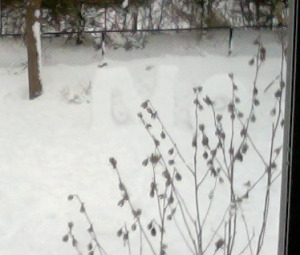If you are interested in stories with happy endings, you would be better off reading some other book…
The car drove farther and farther away, until Justice Strauss was merely a speck in the darkness, and it seemed to the children that they were moving in an aberrant – the word “aberrant” here means “very, very wrong, and causing much grief” – direction. (Lemony Snicket, A Series of Unfortunate Events, The Bad Beginning (New York, NY: Harpercollins publishers, 1999)
It’s the story of the Baudelaire orphans trying to survive the fiendish plots of Count Olaf with life, health, and inheritance intact. As the three children get older, they grow from seeing everyone as either all good or all evil to seeing everyone (themselves included) as a mixture of light and dark, good and evil. Along the way, some good people make costly mistakes and a few villains find the courage to do what’s right. There is a lot of gray, and not all the questions are answered.
Like most of us, the Baudelaire children gradually come to realize that not everyone is willing to do the right thing. Some lack courage, others can’t figure out what the right thing is, and still others prefer worldly gain over personal sacrifice. Not everything gets resolved, and the three children don’t get a clear happy ending. What they get are moments of decision and the strength to accept the consequences of their actions. They make mistakes, they cause pain, and they grow up enough to withhold snap judgements about the actions of others.
At the end of the series, the children face an uncertain future together, willing to help others even at their own cost. They accept the world for all the hurts it has brought, and they accept their own inability to create a perfectly happy ending for everyone they love.
There isn’t anything particularly religious in this book or the twelve others in the series, but moving from a child’s simplistic view of people as all good or all bad to a more nuanced perspective is a sure sign of maturity. If such maturity evokes compassion for self and others, it is a journey of faith. If it ends in the rigid condemnation of others and personal despair, it’s a glimpse of hell.
Thank you, Lemony Snicket, for the ethics lesson, and for all the big and small words that took me on the journey.




